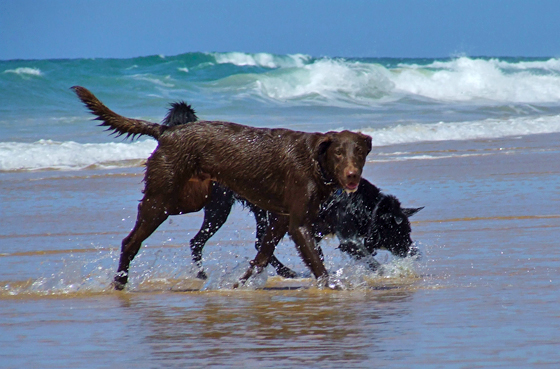Dog training doesn’t happen in a laboratory!
This post is part of the series in response to Dunbar’s 2012 Australian seminars. See index.
Along with Dunbar’s criticisms of the four quadrants of operant conditioning, he also criticised learning theory for being “mostly irrelevant” to pet dog training. ‘These days’, learning theory is common knowledge for most dog trainers, but Dunbar considers it to be mostly irrelevant in the ‘real world’ of dog training.

Outside of the laboratory is a whole wide world of training environments and possible rewards. So why are we so caught up on learning theory?
Much of learning theory has been established by computer-use of reinforcements and punishments. To Dunbar, this means the findings of learning theory, as delivered a lab, is only relevant to lab settings. In a laboratory, the subjects are normally rats or pigeons, computers control the training, and the animals are contained. In the real world of dog training, humans are not computers (they are inconsistent), dogs are more complex than rats and pigeons, dogs escape from people (aren’t contained), and dogs bite!
But humans have an advantage: Humans have voice and can moderate their tone to reward and punish. Computers cannot use verbal rewards or punishments, and so research on verbal feedback is almost entirely neglected. Dunbar encourages verbal feedback to train recalls, and claims it is easy to do. He believes that verbals are more expressive than clicks, jerks and shocks. Verbals can describe how desirable behaviour was and also an appropriate alternative behaviour.
Punishment may be effective in a laboratory, but (to quote his handout) “people are inconsistent and so the dog quickly learns those times when he will not be punished, i.e., when the owner is physically-absent (dog at home alone), physically-present but functionally absent (dog off leash), or physically-present but mentally absent (owner day-dreaming or making a phone call).” On top of this, owners normally have bad timing, and dogs learn to be separated from their owners to avoid punishments. (See also: Dunbar’s thoughts on punishment.) Dunbar described people as “screwed before we start” if we seek to replicate laboratory settings in real-world dog training. Continue reading

